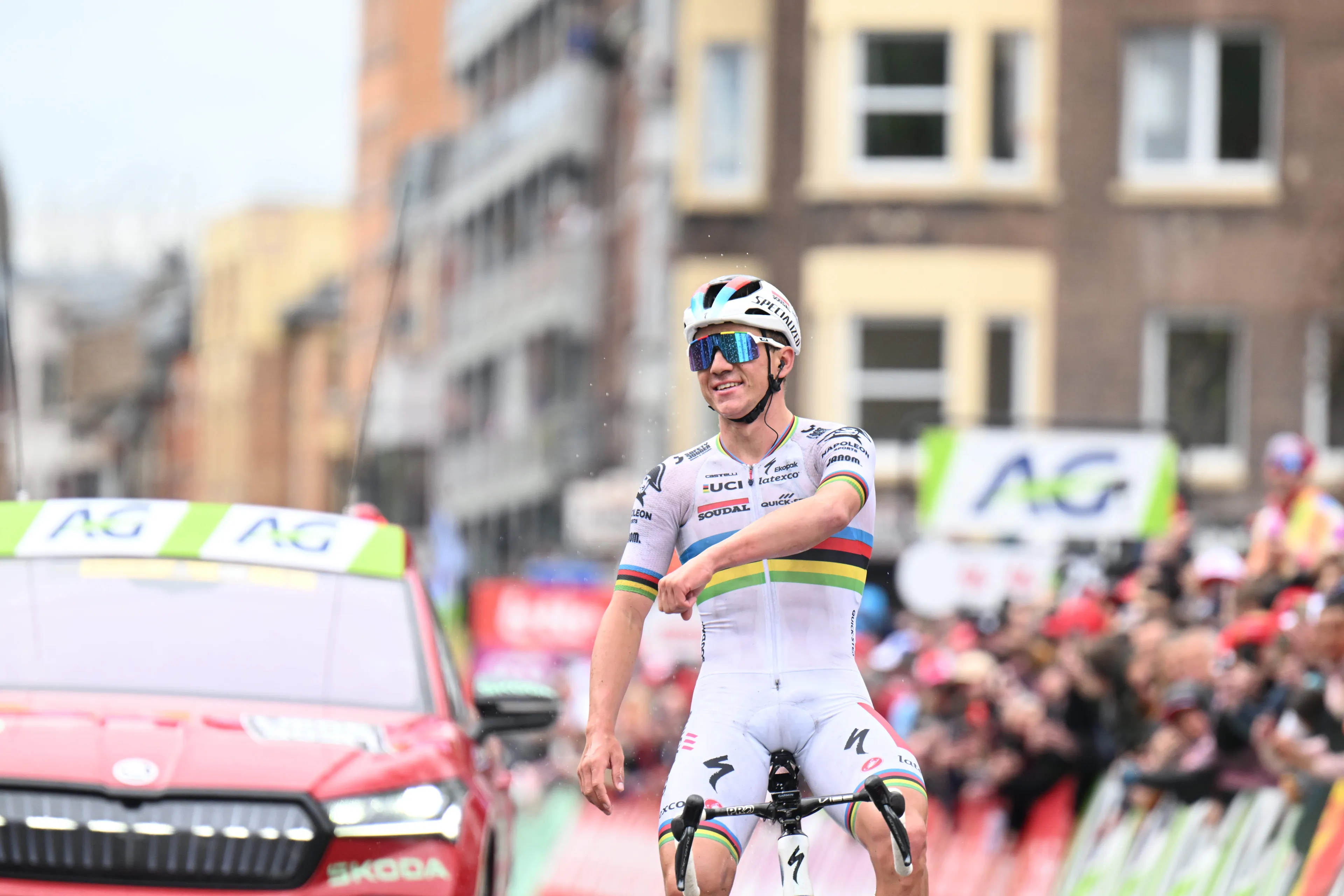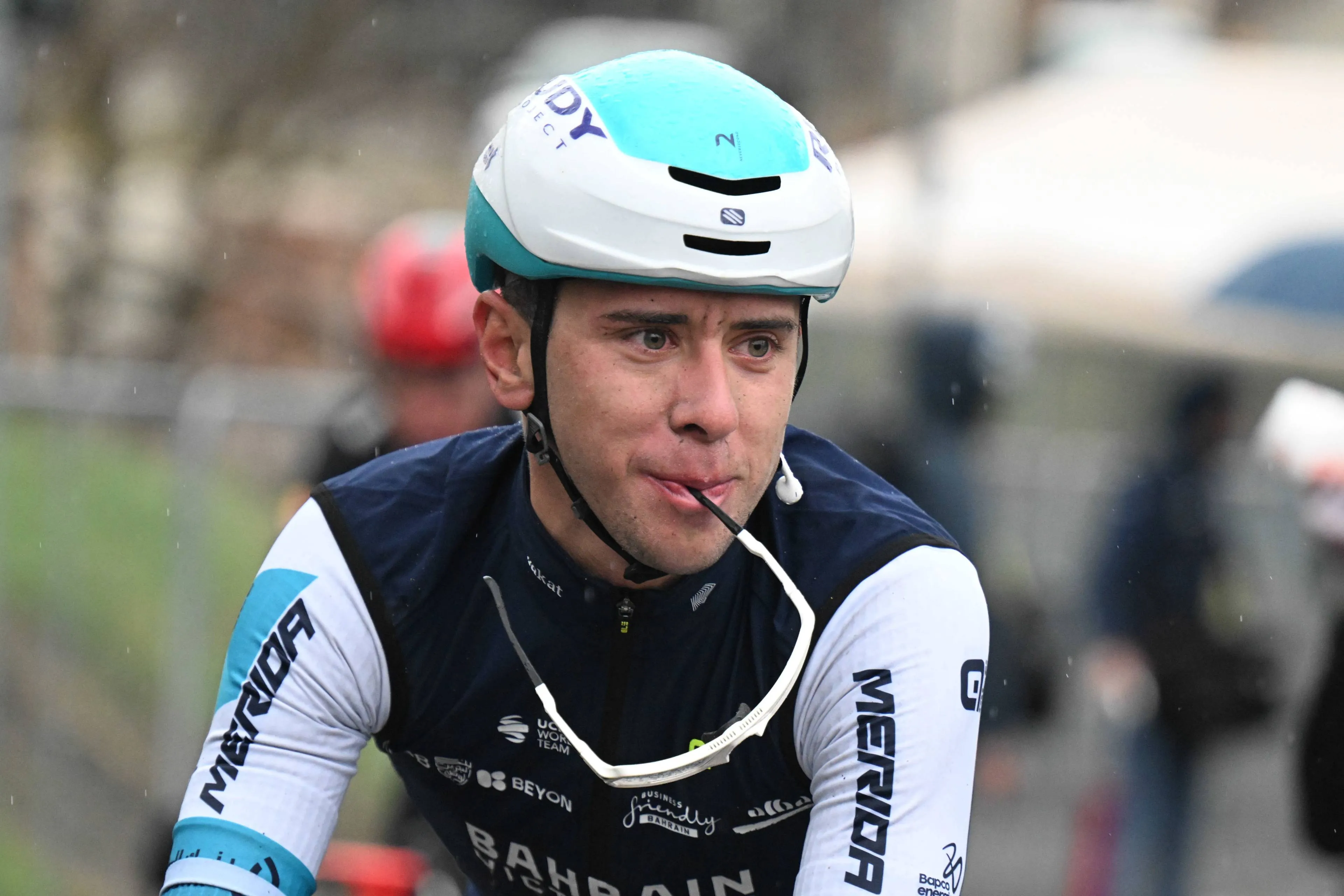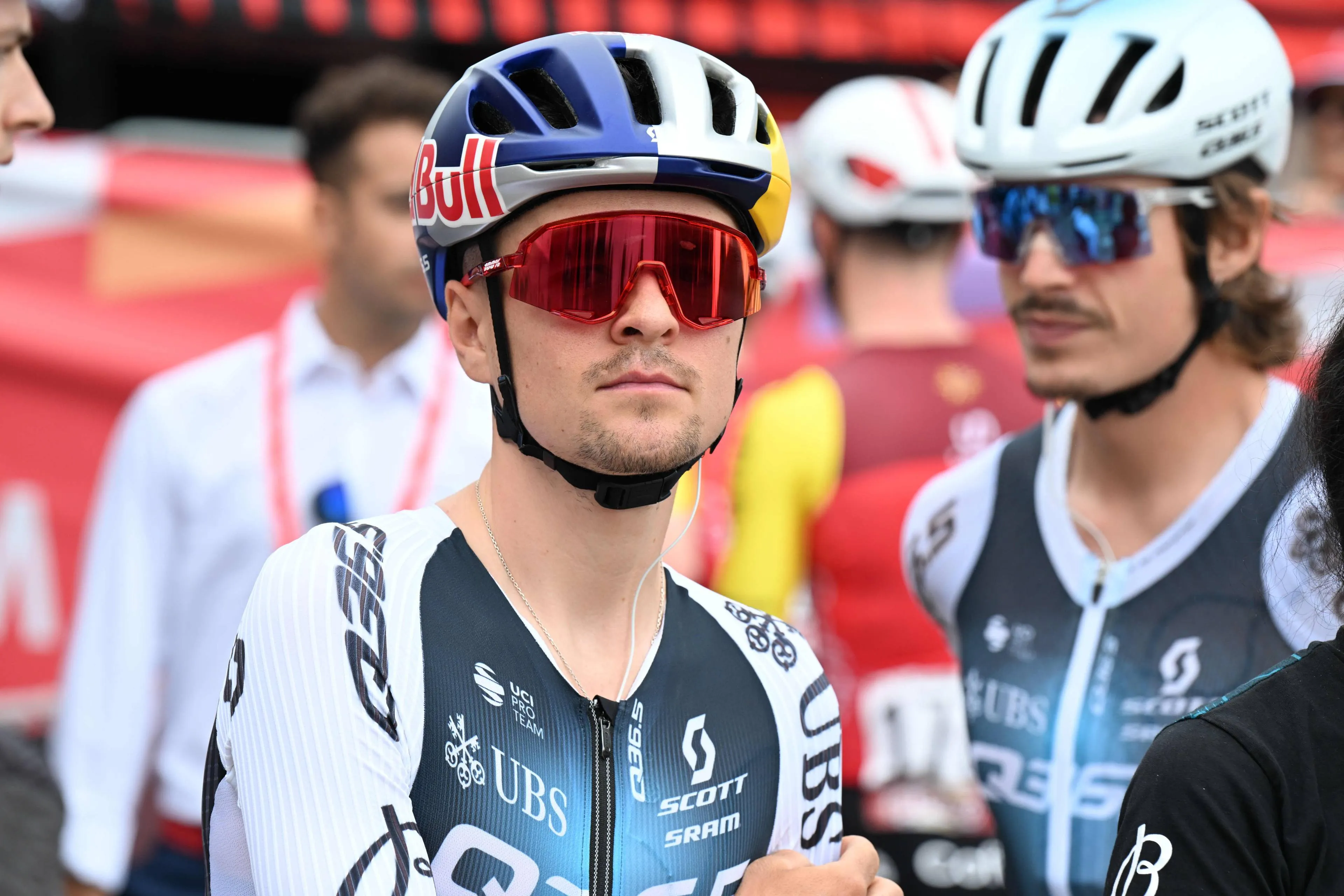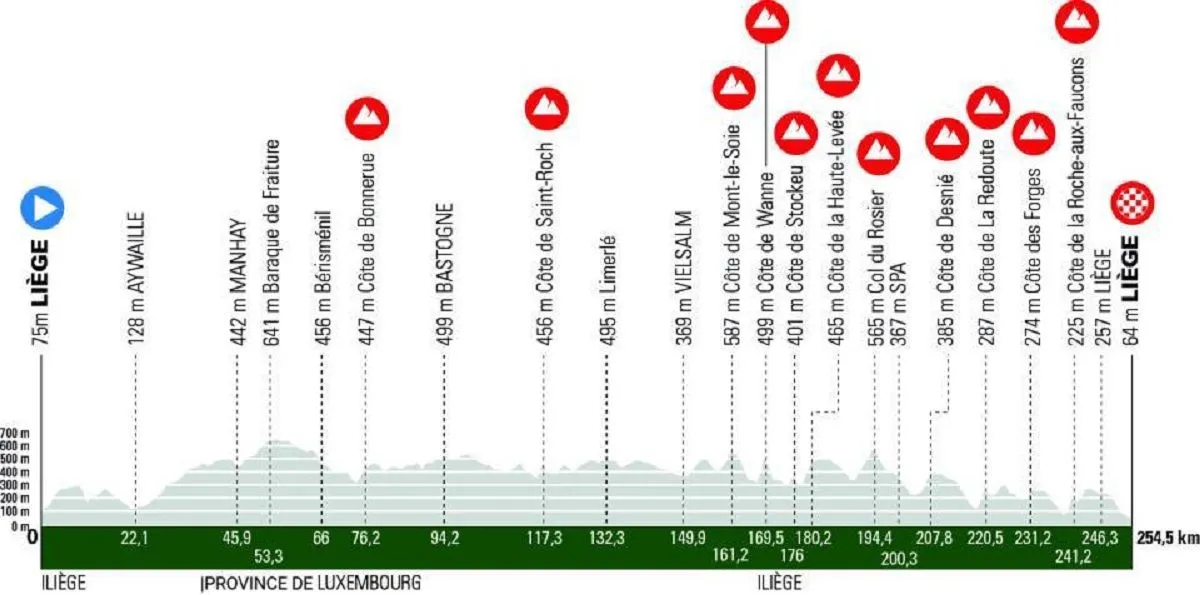
On April 21st, we reach the culmination of the Ardennes classics and the conclusion of the spring classic season with La Doyenne, more commonly known as Liège-Bastogne-Liège, the fourth monument of the season. Let's explore its profile.
The race features a whole 254.5 kilometers making it one of the longest in the calendar. Through the Belgian Ardennes, it's a full day of climbing, although they are short hills. The action gets more intense towards the end, and the race should be decided in the final kilometers that, as always, features several difficult climbs that will split the race before reaching Liège. There will be 4000 meters of climbing, and this includes climbs where the classics specialists can actually struggle and the climbers can make the difference.
Read also

Liège - Liège, 254.5 kilometers
A lot of it comes in the final 100 kilometers. There will begin a long sequence of climbs, with virtually no flat roads inbetween. With 78.5 kilometers to go you have the steepest climb of the day the Côte du Stockeau (1km at 12.8%) and the longest which is the Col du Rosier (4km at 5.7%) with 60 kilometers to go.
With 47Km to go there’s the Côte de Desnié (1.6Km at 7.5%), and the third-to-last climb is the Côte de la Redoute which summits with 34 kilometers to go. It's not being climbed to the top, featuring 1.6 kilometers at 8.7% and right after the summit following a short descent and hilltop where the race can be decided as it has in the past. The Côte des Forges comes after, featuring 1.3Km at 7.9% ending with 23.5Km to go.
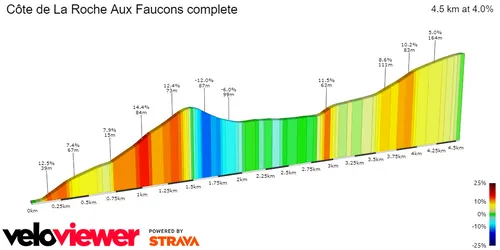
Côte de la Roche aux Faucons: 1.3Km; 10%; 13.5Km to go
The decisive point of the race may be the Côte de la Roche Aux Faucons. It is the final climb of the day, and the small hilltop afterwards (which I consider part of it) can be just as crucial. It is 1.3Km long at 10.5%, essentially the same data as the Mur de Huy but without such gruesome gradients.
It summits with 13.5 kilometers to go, will it however see decisive attacks? It may not, as there are only some seconds of rest before a small second hilltop which has 1,2Km at 6.3% (10Km to the finish). This is a weird combination of climbs, where riders risk cracking on the second if they go all-out to make the differences in the first climb. If they save up for the last hilltop, they risk carrying a big group in the wheel, the tactics can be very interesting.
The descent into Liège is fast and only the final two kilometers are flat, if a rider makes it over the climbs alone it'll be near impossible to close gaps.

Finale Liège-Bastogne-Liège 2024
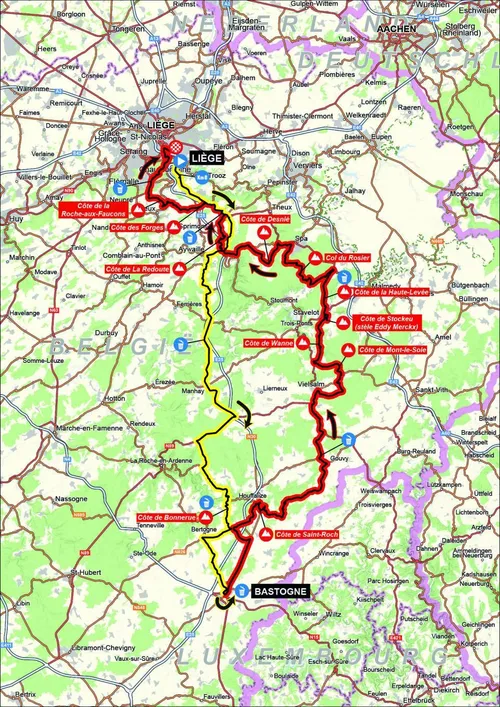
Map Liège-Bastogne-Liège 2024
claps 0visitors 0
Just in
Popular news
Latest comments
- You need to get out moreJezla18-02-2026
- Ego and self regard are at the center of most human folly.TheOlderIGetTheFasterIWas18-02-2026
- You can't win 'em all. These early season races at this level are good because it shows where you are weak and need work.awp18-02-2026
- This is what I wrote 12-02-2026 10:00: "As far as I'm convinced, Remco still has "zero" wins. I invite Remco to stop in Siena to meet his Slovenian master, Pogi the G.O.A.T... but no, it's better to run away and hide. His fans will somehow defend and glorify him. Let me repeat, he still has zero wins in 2026. If someone doesn't have a high enough IQ to understand what I'm talking about, it's because they don't recognize the low ranking F category races. If Remco will beat Del Toro and Adam Yates in the UAE Tour, then I will consider this to be his first win in 2026. Ad acta." PS: Remco still has zero wins. His second and third class races don't count. The first real race comes along and Mustafa Remco fails.Mou-Cro-HR18-02-2026
- This is what I wrote 12-02-2026 10:00: "As far as I'm convinced, Remco still has "zero" wins. I invite Remco to stop in Siena to meet his Slovenian master, Pogi the G.O.A.T... but no, it's better to run away and hide. His fans will somehow defend and glorify him. Let me repeat, he still has zero wins in 2026. If someone doesn't have a high enough IQ to understand what I'm talking about, it's because they don't recognize the low ranking F category races. If Remco will beat Del Toro and Adam Yates in the UAE Tour, then I will consider this to be his first win in 2026. Ad acta." PS: Remco still has zero wins. His second and third class races don't count. The first real race comes along and Mustafa fails.Mou-Cro-HR18-02-2026
- OK, let's stop with the BS. Remco Mustafa didn't have any cramps, 100%. The only truth is, Remco is not the great cyclist that the Belgians and his fans want us to think. Ad acta!!!... Once in the fall of 2025 I said that Remco's chances of following Pogi are equal to my chances, there is no difference. The only difference is that I'm in front of a TV and Mustafa is acting and making excuses live in front of an audience of millions. Ayuso and Remco are the biggest liars in the peleton.Mou-Cro-HR18-02-2026
- I just hope that he just says that he got cramps and that's it, rather than some long-winded excuse which makes him seem even more of a piece of...
 Rafionain-Glas18-02-2026
Rafionain-Glas18-02-2026 - finally, a team that does something smart. I could never understand why Ineos would like Egan train as he did alone. put a motorbike behind him with an earpiece to call out issues above. same with remco crashing into a postal truck.mij18-02-2026
- Wow, that is not a good sign for Remco. Great win for Tiberi!Pedalmasher18-02-2026
- Great champion Remco but his profile is more suitable for Ardennes-like races and tour with no very hard climbs. Not only Tadej and Vingegaard, there are a lot of younger cyclists (del Toro, Ayuso, maybe Seixas, Nordhagen and others) that will soon be big GC boys.
 maria2024202418-02-2026
maria2024202418-02-2026
Loading
Write a comment
